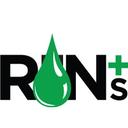Novozymes' Eversa enzymatic biodiesel solution ready for market

December 2, 2014
BY Ron Kotrba
After working with a handful of producers over the past several years to prove the technical and economic viability of liquid enzymatic biodiesel processing, Novozymes is making its Eversa enzymatic processing solution commercially available to the biodiesel industry.
“The idea of enzymatic biodiesel is not new, but the costs involved have been too high for commercial viability,” said Frederik Mejlby, marketing director for Novozymes’ grain processing division. “Eversa changes this and enables biodiesel producers to finally work with waste oils and enjoy feedstock flexibility to avoid the pinch of volatile pricing.” Eversa can work with a broad range of fats, oils and greases, but initial focus has been on used cooking oil, distillers corn oil and fatty acid distillates.
Making the change from a chemical catalyst to the enzymatic process requires retrofitting in existing plants. Biodiesel producers looking to use Eversa must invest time and resources to switch to enzymatic processing. Novozymes’ engineering partners estimate that the resulting improved process economy indicates a payback time of three years or less, depending on the plant setup and regional feedstock savings potential.
Advertisement
Global biodiesel plant builder Desmet Ballestra says enzymatic processing will prove popular with biodiesel producers. “The enzymatic process is simple and does not need much pretreatment,” said Marc Kellens, group technical director at Desmet Ballestra. “It is the best alternative for modifying existing plants to enable them to incorporate difficult-to-convert oils. In conventional plants, 80 to 85 percent of the costs of biodiesel are linked to feedstock cost. So the more you are able to convert a cheaper feedstock into biodiesel, the more profitable the business is. The enzymatic process makes it possible to convert waste oils into biodiesel with relatively low capital expenditure by retrofitting a plant.”
Kellens said he believes the enzymatic process is a more direct and less complicated one, and will initially be used as an add-on to the existing biodiesel market to make use of these cheaper waste oils.
Advertisement
“The enzymatic process uses less energy, and the cost of waste oil as a feedstock is significantly lower than refined oils,” Mejlby added. “A small number of plants have been producing biodiesel from waste oils using existing technologies. But this has not been cost-efficient until now, broadly speaking, as the waste oils have had to be refined before being processed using chemicals. We hope that our technology can unleash more of the potential in these lower grade feedstocks.”
The enzymatic process eliminates the need for sodium methoxide. “Switching to Eversa can lead to a safer working environment for plant operators,” Mejlby said. “The enzymatic process does not use high pressure or high temperature, and when it comes to the actual enzymes, their organic nature and mild process conditions do not generate toxic components as in some chemical biodiesel processes.”
Novozymes teamed up with Piedmont Biofuels several years ago to develop the technology, and subsequently the enzyme maker has worked with Viesel Fuel, Blue Sun Biodiesel, WB Services (Green Energy Products and Adkins Energy) and its latest customer, Buster Biofuels, a 5 MMgy plant under construction in San Diego.
Related Stories
Biodiesel capacity in the U.S. and Canada dipped slightly stable in 2024, with several renewable diesel producers reporting headwinds and lower margins alongside a drove of SAF projects in various stages of development.
The IEA’s Task 39 group has new research regarding the development and status of the sustainable aviation fuel industry.
The U.S. EPA on Nov. 16 released updated RIN data, reporting that nearly 2.11 billion RINs were generated under the RFS in October, up from 1.81 billion generated during the same month of last year.
Conestoga to host SAFFiRE cellulosic ethanol pilot plant
Conestoga Energy and SAFFiRE Renewables LLC announced on Nov. 16 their agreement for Conestoga to host SAFFiRE’s cellulosic ethanol pilot plant at Conestoga’s Arkalon Energy ethanol facility in Liberal, Kansas.
Officials at Calumet Specialty Products Partners L.P. discussed the company’s proposed plans to boost sustainable aviation fuel (SAF) production at its Montana Renewables biorefinery during third quarter earnings call, held Nov. 9.
Upcoming Events










